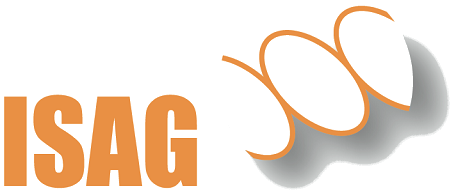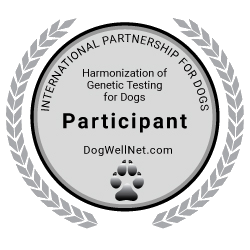Progressive retinal atrophy (rcd1-PRA and rcd4-PRA)
Disease
Progressive retinal atrophy (PRA) is a leading hereditary cause of blindness in pedigree dogs as is its counterpart retinitis pigmentosa (RP) in humans. PRA shows genetic heterogeneity, as does RP, with several distinct forms already recognized and several more remaining to be investigated.
One can distinguish between late onset forms of PRA and early onset (whelp-age) dysplastic changes. The clinical and ophthalmologic signs of both forms are similar. Affected dogs suffer from bilateral Mydriasis, the reflection of the Tapetum lucidum is increased and the retinal vascular network appears atrophic.
Gordon Setter and Irish Setter:
The PRA of Irish Setters is a dysplasia of cones and rods, named rod-cone dyspalsia type 1 or type 4 (rcd1 or rcd4). For Gordon Setter only rod-cone dysplasia type 4 (rcd4) is validated.
The rcd1 mutation causes early onset of PRA. Dogs with a rcd4 mutation, also called Late Onset PRA (LOPRA), exhibit night blindness as a first symptom of the disease, which starts with two years of live at the earliest.
Tibetian Terrier:
In Tibetian Terriers the rcd4 mutation is shown to cause one type of PRA. Further unknown mutations might play a role in hereditary forms of PRA in that breed.
Breed
rcd1-PRA: Irish Setter and Irish Red and White Setter
rcd4-PRA: Australian Cattle Dog, English Setter, Gordon Setter, Irish Setter, Irish Red & White Setter, Polish Lowland Sheepdog, Small Munsterlander and Tibetian Terrier
Trait of inheritance
Test duration
1-2 weeks after arrival of the sample in the lab
Material
The DNA test is performed out of EDTA blood or buccal swabs. Required swabs can be ordered free of charge. (Buccal swab order-form). If a swab is sent in, possibly the genetic material is not sufficient to run the test. In this case it would be best to send in an EDTA blood sample.
Testing procedure
Please send in your sample together with the lab order genetic. Results will be transmitted optionally via post, fax or email. After completion of the test you will receive a separate invoice. Payment can be made via credit card or bank transfer.
Breeding club discounts apply if a copy of the membership card is sent together with the respective samples. Due to administrative reasons the invoiced price can not be altered subsequently.
Questiones?
Please contact our molecular biology team for further questions.
LABOKLIN GmbH und Co.KG
Steubenstraße 4
D-97688 Bad Kissingen
Telefon: +49 (0)971 72020
Fax: +49 (0)971 68546
E-Mail: info@labogen.com
Links
*) Partnerlaboratory


